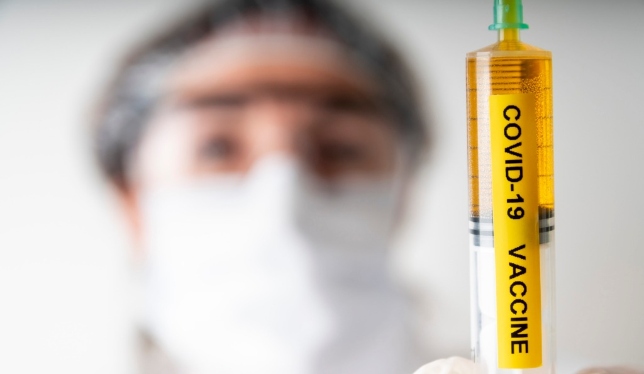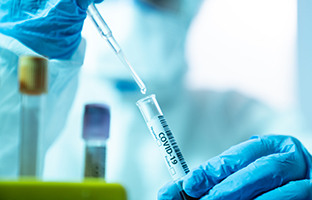Ottawa launches three-pronged national research strategy to fight COVID-19
The federal government’s $1.1-billion plan includes more funds for vaccine research, clinical trials, and expanded testing and modelling.

On Thursday, Prime Minister Justin Trudeau announced $1.1 billion in new funding for a national research strategy to fight COVID-19. The prime minister said this strategy would be built on three pillars: vaccine research, clinical trials, and testing and modelling.
Nearly $115 million in federal funds will support vaccine research at hospitals and universities (this will be on top of money previously earmarked for vaccine research and administered through the research granting councils). Clinical trials for a vaccine against the coronavirus and COVID-19 treatments will receive an investment of $662 million.
Another $350 million will be put towards expanding COVID-19 testing and modelling. As part of this pillar, the government has struck the COVID-19 Immunity Task Force. Working with public health officials and health researchers, the group will oversee a blood–testing campaign to better understand the scope of the coronavirus infection and COVID-19 immunity in this country, which will ultimately help with vaccine development and in determining which public health measures have been most effective.
The task force will be co-led by David Naylor, a professor of medicine, former president of the University of Toronto and chair of the federal government’s review of fundamental science, and Catherine Hankins, a specialist in public and population health at McGill University. Timothy Evans, director of the school of population and global health at McGill, will lead a secretariat that guides the task force and connects its work to international partners. The task force and secretariat will be supported by the Public Health Agency of Canada and Theresa Tam, chief public health officer, as well as Mona Nemer, Canada’s chief science advisor.
Ramped-up testing
During his daily press briefing on Thursday, Mr. Trudeau said that Canada is currently running 20,000 COVID tests a day, but that this number must increase significantly before the country “reopens.” Over the next two years, he said, a million Canadians will be tested for COVID-19. To do this, the task force will “leverage new and existing lab capacity.”
In a press release from McGill, Dr. Evans said that most research has so far looked at symptomatic carriers of SARS-CoV-2 – “the tip of the iceberg” of this coronavirus infection. “What we can’t see are all the people who’ve been infected, but whose symptoms are so mild that they haven’t been tested. Serological testing will give us a sense of just how many people that is, and where they live. This is important, because if the base of the iceberg is very broad – many persons have evidence of being infected – this may diminish the ability of the virus to transmit as easily in subsequent waves of infection.” Having a sense of how many people have some immunity to the coronavirus, and where in the country most of these people are located, will offer politicians some scientific basis for considering how and when to ease public health measures. It will also help target surveillance for new outbreaks.
New genomics network
Also part of this new funding package is the launch of the Canadian COVID Genomics Network. The network will focus on how the coronavirus works and why its effects can vary widely from patient to patient. According to Genome Canada, which leads this new initiative alongside six regional partners, the network will receive $40 million to sequence the genomes of up to 10,000 patients and 150,000 viral samples, establishing “a bank of ‘virus to patient’ data that will inform decision-making by public health authorities and support the development of therapies and vaccines.” Sequencing activities will be coordinated by CGen through its facilities in Toronto, Montreal and Vancouver.
McGill’s Genome Centre is one CGen facility involved in this project. In a separate media release, the university explained that this research will build on the initial genetic code for SARS-CoV-2 that was shared by Chinese researchers in January. The goal is to identify changes in the viral sequence as it spreads.
The University of Saskatchewan’s Vaccine and Infectious Disease Organization-International Vaccine Centre (VIDO-InterVac) has also been awarded funding out of this new package. The centre will receive $23 million for pre-clinical testing and clinical trials of COVID-19 vaccines. Volker Gerdts, director of the centre, explained in a statement that researchers there have already begun manufacturing a prototype vaccine and assessing how safe it is for human use. Clinical testing in humans is scheduled to begin this fall, with a vaccine release date optimistically expected next spring.
He noted that there are more than 75 confirmed vaccine candidates in development in 19 countries, but that Canada should continue to invest in finding its own solution: “The global race to find a vaccine in response to the COVID-19 pandemic is unprecedented in terms of scale and speed, but it will take a significant amount of time for vaccines to be developed for the whole world. To ensure Canadians have access to these life-saving vaccines, it’s important that we develop timely vaccines here in Canada.”
To help speed up these trials, the federal government has earmarked $29 million for the National Research Council’s Human Health Therapeutics Research Centre. The money will pay for upgrades to its facility in Montreal, which will produce vaccines for clinical trials and, eventually, for public distribution. The Prime Minister’s Office added some detail to other initiatives that the funding announced on Thursday will support:
- $600 million over two years to projects administered through the Strategic Innovation Fund that focus on COVID-19 vaccine and clinical trials for treatments led by the private sector and Canadian biomanufacturing organizations;
- $10 million for a data monitoring initiative to coordinate and share pandemic-related data across the country;
- $10.3 million over two years, and $5 million ongoing, to the Canadian Immunization Research Network for vaccine-related research, clinical trials, and vaccine monitoring;
- $114.9 million through the Canadian Institutes of Health Research to launch a new COVID-19 Rapid Research grant for projects that will accelerate the development, testing and implementation of medical and social measures to counter the spread of COVID-19, and to address its social and health impacts.
Featured Jobs
- Canada Excellence Research Chair in Computational Social Science, AI, and Democracy (Associate or Full Professor)McGill University
- Psychology - Assistant Professor (Speech-Language Pathology)University of Victoria
- Business – Lecturer or Assistant Professor, 2-year term (Strategic Management) McMaster University
- Veterinary Medicine - Faculty Position (Large Animal Internal Medicine) University of Saskatchewan















Post a comment
University Affairs moderates all comments according to the following guidelines. If approved, comments generally appear within one business day. We may republish particularly insightful remarks in our print edition or elsewhere.